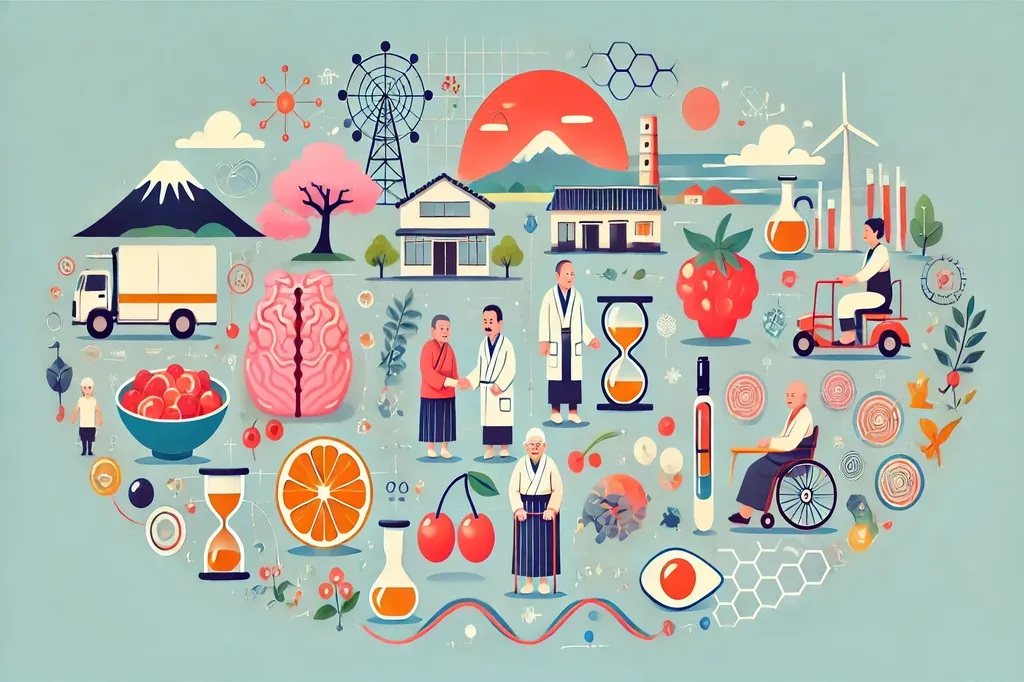Aging is an inevitable part of life, but with scientific advancements and wellness trends, many people wonder whether it’s possible to slow down the aging process. Misinformation about longevity is everywhere, leading many to follow practices that may not actually contribute to a longer, healthier life. In this article, we’ll debunk 10 of the most common myths about longevity and uncover what truly works based on scientific research.
Myth 1: The Older You Get, the Weaker You Become
Reality:
While aging naturally comes with changes, regular physical activity and a balanced diet can help maintain strength, flexibility, and cognitive function well into old age. Studies show that strength training, even for seniors, can help maintain muscle mass and prevent frailty.
Myth 2: Genetics Determine How Long You’ll Live
Reality:
While genes do play a role in longevity, lifestyle factors such as diet, exercise, and stress management have a more significant impact. Research shows that lifestyle choices can contribute up to 80% of how long you live.
Myth 3: Taking Supplements Can Extend Your Life
Reality:
There is no miracle pill for longevity. While certain vitamins and minerals are beneficial, relying solely on supplements instead of a balanced diet won’t significantly prolong life. Nutrient-dense foods provide essential compounds that work together in ways supplements can’t replicate.
Myth 4: You Need to Eat Less to Live Longer
Reality:
Caloric restriction has been linked to increased lifespan in some animal studies, but extreme dieting can lead to nutrient deficiencies and muscle loss. The key is balanced nutrition with high-quality foods rather than drastic calorie reduction.
Myth 5: Avoiding Fat Keeps You Young
Reality:
Healthy fats, such as those found in avocados, nuts, and olive oil, are essential for brain health and inflammation reduction. Completely eliminating fat can lead to deficiencies that accelerate aging.
Myth 6: Stress Has No Effect on Longevity
Reality:
Chronic stress increases inflammation and contributes to heart disease, cognitive decline, and a weakened immune system. Managing stress through mindfulness, meditation, and social connections is crucial for long-term health.
Myth 7: Cardio is the Only Exercise That Matters for Longevity
Reality:
While cardiovascular exercise is beneficial, strength training and flexibility exercises are equally important. A combination of different workouts supports heart health, mobility, and bone density.
Myth 8: Sleep Quality Declines with Age, and That’s Normal
Reality:
Aging does not have to mean poor sleep. Maintaining a consistent sleep schedule, reducing screen time before bed, and optimizing sleep environments can improve rest at any age.
Myth 9: Drinking Red Wine Daily Extends Your Life
Reality:
While some research links moderate red wine consumption to heart health benefits, excessive drinking increases the risk of numerous health issues. The key is moderation, and there are many other sources of antioxidants without the risks of alcohol.
Myth 10: You Should Avoid the Sun to Prevent Aging
Reality:
While excessive sun exposure causes skin damage, moderate sun exposure is essential for vitamin D production, which supports bone health and immune function. The key is balanced sun exposure with appropriate protection.
Conclusion
While aging is unavoidable, many of the myths surrounding longevity can do more harm than good. The best approach to a long and healthy life is a combination of balanced nutrition, regular exercise, stress management, and maintaining social connections. Instead of chasing after quick fixes, focus on sustainable, science-backed habits that truly make a difference.

